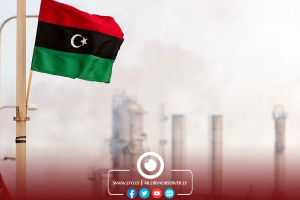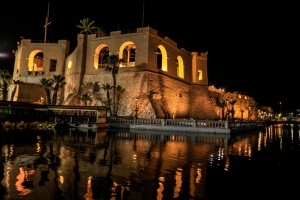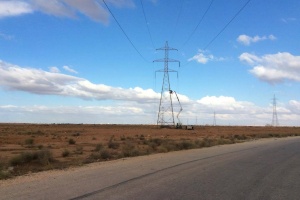By Mohamed Abaid, Independent Libyan Analyst
NOC's Gas Failures Push Libya Toward Blackouts: Where Is Farhat Bengdara?

Libya’s already fragile electricity infrastructure is once again under threat, as the National Oil Corporation (NOC) continues to fail in providing the General Electricity Company of Libya (GECOL) with the necessary natural gas to power the country's major stations. The consequences are dire: power stations are unable to meet the nation’s electricity needs, pushing Libya towards an inevitable series of blackouts that could cripple essential services.
Meanwhile, as the crisis deepens in Tripoli, NOC Chairman Farhat Bengdara has reportedly chosen to vacation in Egypt, seemingly oblivious to the escalating problems at home. This level of indifference would be shocking if it wasn’t so sadly predictable from a corporation that has been mired in corruption and inefficiency for years.
Power Plants Running on Empty: A Crisis of Supply
GECOL has made it clear that the shortfall in natural gas from the NOC is the single biggest factor behind the looming power outages. According to recent reports, major power stations like Zawia, Khoms, and Benghazi North are receiving only a fraction of the gas they need to keep the lights on for millions of Libyans.
For example, the Zawia Steam Station requires 2,500 million cubic feet of gas daily but has only been supplied with a meager 130.1 million cubic feet. This pattern is repeated at station after station, with GECOL’s demands for fuel being consistently ignored by the NOC. It's not just an energy problem; it’s a failure that jeopardizes hospitals, schools, businesses, and even access to clean water for ordinary citizens.
To put it simply, a power plant without fuel is like a car without gas – no matter how advanced or well-maintained it is, you cannot expect it to operate if it doesn’t have the fuel it needs to run. And just as a car stuck on the side of the road is useless, a power station with no natural gas supply leaves entire cities in the dark.
Mismanagement and Corruption: The NOC’s Longstanding Failures
The failures of the NOC aren’t new. They are part of a much larger pattern of corruption and mismanagement that has plagued Libya’s oil and gas sector for years. Despite being allocated vast sums of money, the NOC has repeatedly failed to deliver the natural gas needed to power the nation’s electricity grid. Where is the gas going? That’s the question everyone is asking, but NOC leadership has yet to offer a clear answer.
According to an internal report from 2022-2024, NOC’s failure to supply natural gas to GECOL has been an ongoing issue. The corporation’s budget, despite exceeding LYD 56.9 billion in recent years, hasn’t translated into the needed infrastructure or improved supply chains. Instead, it has seemingly evaporated into thin air, much like Libya’s electricity, leaving both GECOL and the Libyan people to suffer the consequences.
Worse still, as power shortages and blackouts loom, NOC Chairman Farhat Bengdara is reportedly on vacation, living it up in Egypt while the people of Tripoli brace for more electricity disruptions. This level of disconnect from the realities on the ground would be comical if it wasn’t so tragic.
Gas Shortages: What It Means for Libya
The impact of these gas shortages is devastating. Not only does it threaten to plunge Libya into darkness, but it also cripples essential services that rely on electricity to function. Hospitals cannot run critical equipment, businesses cannot operate efficiently, and people’s daily lives are disrupted by the unpredictability of power availability. This is all happening as Bengdara enjoys a vacation abroad, apparently unconcerned with the unfolding crisis.
Let’s be clear – GECOL has made every effort to work with the NOC to ensure that natural gas supplies are delivered. They’ve sent request after request, only to receive token amounts of fuel that barely make a dent in the demand. For NOC to consistently ignore these requests, knowing full well the consequences, is nothing short of gross negligence.
The Clock is Ticking
As Libya’s fuel crisis worsens and blackouts become inevitable, the NOC must be held accountable for its failures. The consequences of inaction will affect every facet of life in Libya, from economic growth to basic human services. It’s time for the NOC to get its act together, and it’s time for Chairman Farhat Bengdara to come back from vacation and do his job.
Without immediate action, Libya risks descending into chaos, and all the while, NOC leadership remains indifferent.
If the NOC can’t do its job, maybe it’s time for a leadership change – one that prioritizes the needs of the people over luxurious vacations.
Disclaimer: The views and opinions expressed in this article are those of the writer, and do not necessarily reflect those of the Libya Observer







